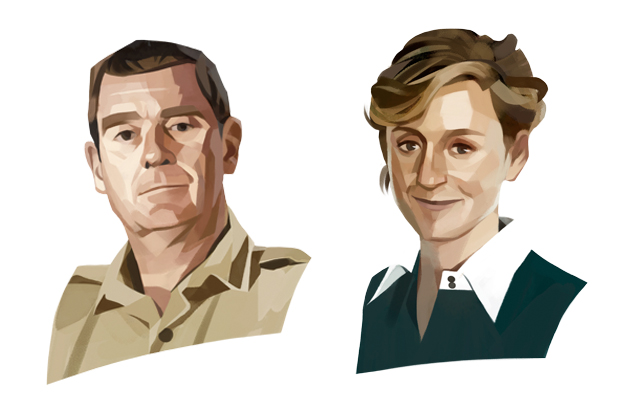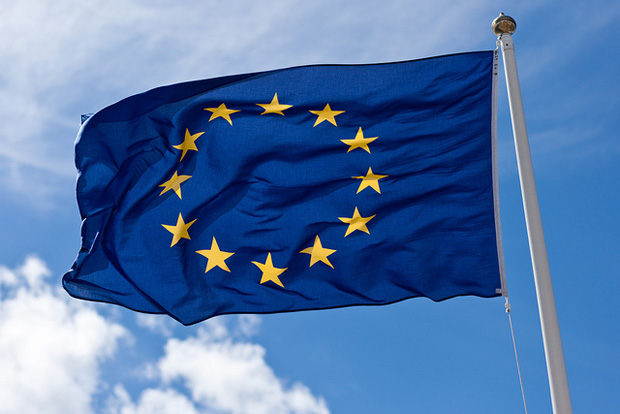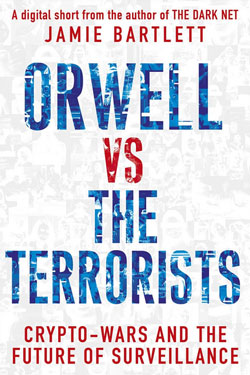18 Mar 2015 | Magazine, mobile, News, Volume 44.01 Spring 2015

Women’s Voices by Meltem Arikan
Index on Censorship magazine’s editor, Rachael Jolley, introduces a special issue on refugee camps, looking at how migrants’ stories get told across the world, from Syria and Eritrea to Italy and the UK
Nothing is national any more, everything and everyone is connected internationally: economies, communication systems, immigration patterns, wars and conflicts all map across networks of different kinds.
Those linking networks can leave the world better informed and more aware of its connections, or those networks can fail to acknowledge their intersections, while carrying as much misinformation as information.
Where people are living in fear a connected world can be frightening, it can carry gossip and information back to those who pursue them. Decades ago, when people escaped from their homes to make a new life across the world, they were not afraid that their words, criticising the government they had fled from, could instantly be broadcast in the land they had left behind.
It is no wonder that in this more connected world, those fleeing persecution are more afraid to tell the truth about what the regime that tortured or imprisoned them has been doing. While, on the one hand, it should be easier to find out about such horrors, the way that your words can fly around the world in seconds adds enormous pressures not to speak about, or criticise, the country you fled from.
That fear often produces silence, leaving the wider world confused about the situation in a conflict-riven country where people are being killed, threatened or imprisoned. The consequences of instant communication can be terrifyingly swift.
Yet a different side of those networks, new apps or free phone services such as Skype, can provide some help in getting messages back to families left behind, giving them some hope about their loved ones’ future. That is one aspect that those in decades and centuries past, who fled their homelands, could never do. In the late 19th century, someone who escaped torture in Russia and travelled thousands of miles to the United States, might never speak to the family they had left behind again.
Communication has been revolutionised in the last two decades – where once a creaky telephone line was the only way of speaking to a sister or father across a continent or two, now Skype, Viber, Googlechat, and others offer options to see and speak every day.
In this issue’s special report Across the Wires, our writers and artists examine the threats of free expression within refugee camps, and as refugees desperately flee from persecution. Sources estimate that there are between 15.5 and 16.7 million refugees in the world today. Some are forced to live in camps for decades, others are fleeing from new conflicts, such as three million who have already left Syria. Many of us may know someone who has been forced to flee from another regime, those that don’t may in the future, and have some understanding of what that journey is like.
In this issue, writer Jason DaPonte examines how those who have escaped remain worried that their words will be captured and used against their families, and the steps they take to try avoid this. He also looks at “new” technology’s ability to keep refugees in touch with the outside world and to help tell the story of the camps themselves.
Italian journalist Fabrizio Gatti spent four years undercover, discovering details of refugee escape routes and people trafficking. In an extract from his book, previously unpublished in English, he tells his story of assuming the identity of a Kurdish man Bilal escaping torture, and fleeing to Italy via the Lampedusa detention camp, and the treatment he encountered. He speaks only Arabic and English to camp officials, but is able to hear what they said to each other in Italian about those seeking asylum. He uncovers the inhumanity and lack of rights those around him experienced in this powerful piece of writing.
Some of our authors in this issue speak from personal experience of seeking refuge, not speaking the language of the land they are forced to move to, and the steps they go through to resettle and be accepted in another land. Kao Kalia Yang’s family fled Laos during the Vietnam war, moving first to Thailand and then to the United States. She remembers how the family struggled first without understanding or speaking in Thai, then the same battles with English once they settled in the United States.
Ismail Einashe, whose family fled from Somaliland, talks to those who have escaped from one of the most secretive countries in the world, Eritrea. Einashe talks to Eritreans, now living in the UK, who are still afraid to speak openly about the conditions at home for fear of retribution.
The report also examines how the global media portrays refugee stories, the accuracy of those portrayals and how projects such as a new Syrian soap opera, partly written by a refugee, are giving asylum seekers and camp dwellers more power to tell the stories themselves.
But when people are escaping danger, the natural inclination is to stay quiet and under the radar. Some bravely do not. They intend to alert the world to a situation that is unfolding, and to attempt to protect others. Our report shows how much easier it is for the world’s citizens to find out about terrible persecution than it was in other eras, but how those communication tools can be turned back on those that are persecuted themselves. The push and pull of global networks, to be used for freedom or to silence others, is an on-going battle and one that we can only become more aware of.
Order your digital version of the magazine from anywhere in the world here
© Rachael Jolley
12 Mar 2015 | mobile, News, Volume 44.01 Spring 2015

Tim Cross and Martha Lane Fox, credit: Mark Boardman
Martha Lane Fox and retired Major General Tim Cross debate how far governments go when balancing individual rights and safeguarding the nation. This is an extract from a longer feature in the latest issue of Index on Censorship magazine.
Martha Lane Fox
When it comes to balancing national security and personal privacy, I believe that your personal data should be your personal data, and that action should be taken based on a case that can be proven, as opposed to looking at everyone in society’s movements and then targeting those who stand out. I am not a fan of the world we seem to be ending up in, and I don’t necessarily believe that it is because of anything malicious. I think it would be better to have a system where your data is your personal property, and there then have to be the same restrictions applied as would be the case if someone wanted to enter your home and go through your belongings or intercept your post.
Tim Cross
Like fighting terrorism, governments have to “fight” with one hand tied behind their backs, but they cannot fight with both hands tied as some would clearly prefer. Individuals will understandably not want governments interfering with, or prying into, their personal privacy, but no one will thank any government if the banking system or consumer supply chains were to collapse. Monitoring cyberspace now forms a key part of any government responsibilities, and is (or should be) included in any national security strategy.
This said, if people fear the state is holding too much data on them unnecessarily and (rightly) demand some semblance of control over what happens with that data, then government is the least of their worries. Leaving aside the fact that government resources are scarce, the idea that some government employee is sitting in a room somewhere carefully sifting through everyone’s email is fanciful. Intelligence and law enforcement have to meet certain criteria including necessity, proportionality and justification. This is absolutely the way it should be. But private firms have no such restrictions in place. Government intelligence and law enforcement agencies are rightly burdened by layers of legality, including authorisations, justifications and audit trails, but big corporations, particularly those whose primary public interface is through cyber means, use and exploit personal details for a wide variety of reasons. While these may sometimes include improving their services, more unpalatably they sell details on to third parties. This is absolutely endemic. Many companies will not allow customers to use their service unless they agree to terms and conditions that essentially mean losing control of their personal details and allowing them to be sold on to the highest bidders. The primary concern of business is making money. Not so with governments, whose intelligence and law enforcement agencies are about deterring/catching enemies and protecting the public.
To read the rest of the debate, click here to subscribe to Index on Censorship magazine. Or buy an individual issue. Or subscribe to the app (free 30-day trial).
Major General (Rtd) Tim Cross (CBE) was commissioned into the British Army in 1971.
He served in Northern Ireland, Macedonia, Albania and Kosovo. He was also the British deputy to the US-led Office of Reconstruction and Humanitarian Affairs, later re-titled the Coalition Provisional Authority. He is chair of the think-tank Theos
Martha Lane Fox is chair of Go On UK, a digital skills charity which helps people to get online. She co-founded travel website lastminute.com, and in 2013 became a crossbench peer in the House of Lords
12 Feb 2015 | Digital Freedom, mobile, News, United Kingdom
In his new ebook, tech expert Jamie Bartlett describes what he sees as the long-term ‘Snowden effect’: the explosion of new ways to keep online secrets and protect privacy, and the challenges that presents for state security services. In this extract, Bartlett uncovers some of the more revolutionary plans in the privacy pipeline.
Motivated by an honourable desire to protect online freedom and privacy, hundreds of computer scientists and internet specialists are working on ingenious ways of keeping online secrets, preventing censorship, and fighting against centralised control. A veritable army motivated by a desire for privacy and freedom, trying to wrestle back control for ordinary people. This is where the long-term effects will be felt.
Soon there will be a new generation of easy-to-use, auto-encryption internet services. Services such as MailPile, and Dark Mail – email services where everything is automatically encrypted. Then there’s the Blackphone – a smart phone that encrypts and hides everything you’re doing. There are dozens – hundreds, perhaps – of new bits of software and hardware like this that cover your tracks, being developed as you read this – and mainly by activists motivated not by profit, but by privacy. Within a decade or so I think they will be slick and secure, and you won’t need to be a computer specialist to work out how they work. We’ll all be using them.
And there are even more revolutionary plans in the pipeline. An alternative way of organising the internet is being built as we speak, an internet where no one is in control, where no one can find you or shut you down, where no one can manipulate your content. A decentralised world that is both private and impossible to censor.
Back in 2009, in an obscure cryptography chat forum, a mysterious man called Satoshi Nakamoto invented the crypto-currency Bitcoin.* It turns out the real genius of Bitcoin was not the currency at all, but the way that it works. Bitcoin creates an immutable, unchangeable public copy of every transaction ever made by its users, which is hosted and verified by every computer that downloads the software. This public copy is called the ‘blockchain’. Pretty soon, enthusiasts figured out that the blockchain system could be used for anything. Armed with 30,000 Bitcoins (around $12 million) of crowdfunded support, the Ethereum project is dedicated to creating a new, blockchain-operated internet. Ethereum’s developers hope the system will herald a revolution in the way we use the net – allowing us to do everything online directly with each other, not through the big companies that currently mediate our online interaction and whom we have little choice but to trust with our data.
Already others have applied this principle to all sorts of areas. One man built a permanent domain name system called Namecoin; another an untraceable email system call Bitmessage.
Perhaps the most interesting of all is a social media platform called Twister, a version of Twitter that is completely anonymous and almost impossible to censor. Miguel Freitas, the Brazilian who spent three months building it, tells me he was sparked into action when he read that David Cameron had considered shutting down Twitter after the 2011 riots. ‘The internet alone won’t help information flow,’ Freitas says, ‘if all the power is in the hands of a few people.’
This trend towards decentralised, encrypted systems has become an important aspect of the current crypto-wars.† MaidSafe is a UK start-up that, in a similar way, wants to redesign the internet infrastructure towards a peer-to-peer communications network, without centralised servers. Its developers are building a network made up of contributing computers, with each one giving up a bit of its unused hard drive. You access the network, and the network accesses the computers. Everything is encrypted, and data is stored across the entire network, which makes hacking or spying extremely difficult, if not impossible.
Nick Lambert, the Chief Operating Officer for MaidSafe, explained to me the vision. When you open a browser and surf the web it might feel like a seamless process, but there are all manner or rules and systems that clutter up the system: domain name servers, company servers, routing protocols, security protocols. This is the stuff that keeps the internet going: rules that route your request for traffic, servers that host that web page you’re after, systems that certify for your computer that the site you’re trying to access isn’t bogus. Because it all happens at the speed of light, it doesn’t feel cluttered up, of course.
But all these little stages and protocols create invisible centres of power, explains Nick – be they governments, big tech companies or invisible US-based regulators – and they are all exercising control over what happens on the net. That’s bad for security, and bad for privacy. MaidSafe strips all this out. The end result, says Nick, will be a network that is very difficult to censor and offers more privacy. ‘Even if we wanted to censor users’ content, we couldn’t – because with this system we don’t know or have access to anything the users do.
They’re in control.’ Nick accepts some people will misuse it – but that’s true of almost any technology. ‘Kitchen knives can cause harm,’ he says, ‘but you wouldn’t ban kitchen knives.’
As I see it, this powerful combination of public appetite and new technology means staying hidden online will become easier and more sophisticated. It might feel unlikely at a time when every click and swipe is being collected by someone somewhere, but in the years ahead, it will be harder for external agencies to monitor or collect what we share and see; and censorship will become far more difficult. A golden age of privacy and freedom. Perhaps.
* You’ve probably heard of this pseudonymous digital cash because it was, and still is, the currency of choice on the illegal online drugs markets.
† And increasingly, I predict, politics. Although no political parties – save the occasional fringe party – have given any thought to what crypto-currencies might mean. What does a modern centre-left party think of crypto-currency, or of blockchain decentralisation? They have no idea.
@JamieJBartlett is the director of Centre for the Analysis of Social Media, Demos and a tech blogger for @telegraph.
This extract was published on 12 February 2015 at indexoncensorship.org with the author’s permission.
15 May 2014 | Europe and Central Asia, European Union, News

(Image: Håkan Dahlström)
A new set of guidelines laid out by the EU, and contributed to by Index on Censorship, will specifically look at freedom of expression both online and offline, and includes clauses, among others, on whistleblowers, citizens’ privacy and the promotion of laws that protect freedoms of expression.
According to the Council of the European Union press statement, freedom of opinion should apply to all persons equally, regardless of who they are and where they live, affirming this freedom “must be respected and protected equally online as well as offline”.
Significant consideration within the EU Human Rights Guidelines on Freedom of Expression Online and Offline, adopted on 12 May, is paid to whistleblowers with the council vowing to support any legislation adopted which provides protection for those who expose the misconduct of others, as well as reforming legal protections for journalists’ rights to not have to disclose their sources.
Reinforcing this, the new guidelines enable the Council to help those, journalists or others, who are arrested or imprisoned for expressing their opinions both online and offline, seeking for their immediate release and observing any subsequent trials.
Member states also have an obligation to protect their citizens’ right to privacy. In accordance with article 17 of the International Covenant on Civil and Political Rights (ICCPR), the guidelines claim “no one should be subject to arbitrary or unlawful interference with their privacy“, with legal systems providing “adequate and effective guarantees” on the right to privacy.
The guidelines will provide guidance on the prevention of violations to freedom of opinion and expression and how officials and staff should react when these violations occur. The guidelines also outline the “strictly prescribed circumstances” that freedom of expressions may be limited; for example, operators may implement internet restrictions (blockages etc.) to conform with law enforcement provisions on child abuse. Laws under the new guidelines that do adequately and effectively guarantee the freedom of opinions to all, not just journalists and the media, must be properly enforced.
“Free, diverse and independent media are essential in any society to promote and protect freedom of opinion and expression and other human rights,” according to the Council press release. “By facilitating the free flow of information and ideas on matters of general interest, and by ensuring transparency and accountability, independent media constitute one of the cornerstones of a democratic society. Without freedom of expression and freedom of the media, an informed, active and engaged citizenry is impossible.”
Read the full set of guidelines here.
This article was posted on May 15, 2014 at indexoncensorship.org




